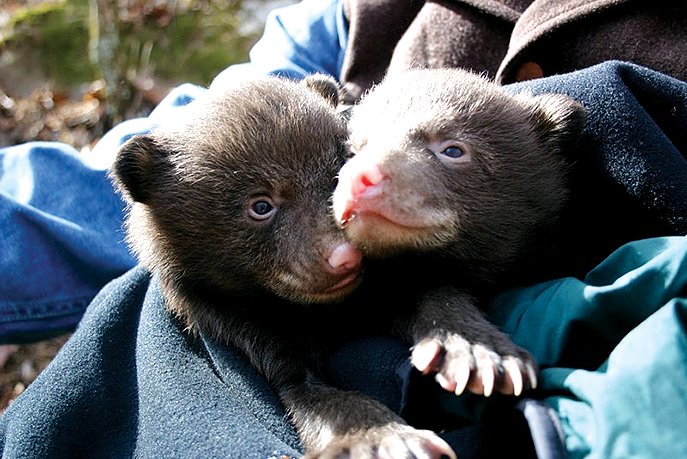Arkansas became a state in 1836, and 22 years later, earned the nickname "The Bear State." At the time, more than 50,000 black bears roamed the Ozarks and the plains and prairies of eastern Arkansas and captured the imagination of visitors. The bears defined the state's reputation as a rugged wilderness.
After years of over-hunting and driving them from their homes, only about 3,000 of these magnificent creatures remain.
FAQ
All About Bears
WHEN — 2 p.m. Saturday
WHERE — Hobbs State Park visitor center near Rogers
COST — Free
INFO — 789-5000, friendsofhobbs.com
"People were starting to move into the state,"explains Denis Dean, retired Florida attorney, Master Wildlife Conservationist and Project WILD facilitator. "People had to cut down trees for homes and buildings and rails. The bears' home was getting cut down, so they just moved out."
Dean will present the complicated history of the Arkansas black bear at a talk Saturday at Hobbs State Park-Conservation Area as part of the Friends of Hobbs Speaker Series. Dean, who fell in love with Arkansas after visiting his son in Fayetteville, took a Master Naturalist program with the University of Florida 15 years ago. After the five-month course, which taught participants everything from geology to trees and birds, Dean began volunteering, he says.
Through this volunteer work and subsequent move to Arkansas, Dean found a "fondness" for the eight species of bears and the Arkansan black bear in particular, he says. "I was asked by Hobbs to put on a bear program," he says. "The black bear is one of my favorites, so of course I wanted to do this program."
Dean's talk will focus on the history of the Arkansas black bear, including what caused the sudden and drastic decrease in population as well as the steps wildlife officials have taken to bring them back to their native habitat.
Trees became even more vital to support population growth with the introduction of the railroad to the new state. Wood needed to fabricate railroad slats and ties caused massive deforestation, Dean says, and led to a steep decline in bear population.
Bears became even more scarce with the introduction of unregulated hunting, he says. Black bear pelts were used for rugs and clothing, and oils derived from bear fat were used for cooking, lamps, insect repellent and skin care and were a main draw for hunters, Dean says.
"These bears are an important part of our environment, ecosystem," says Dean. "Hunting, well that's part of the Arkansas history. Since the bears have been reintroduced, they have opened up hunting again in the state."
The black bear was introduced back into Arkansas over a 10-year period beginning in 1958. The program was proposed by Gene Rush of the Arkansas Game and Fishing Commission, and for five years, pickup trucks loaded down with bears made their way from northern Minnesota to the woods of Arkansas, Dean says.
"We traded wild turkeys for Minnesota bears," Dean says. "But for the first five years, they realized, all they brought back to Arkansas were male bears. So for the next five years, they brought in females -- 254 total. It went from zero to now more than 3,000. It's been a successful reintroduction. It's great to see them expand into their former home.
"It's important that people walk away from this talk with an understanding of the Arkansas black bear," Dean continues. "They should not be afraid but should respect them. And appreciate these bears. We should all be glad that they're around."
NAN What's Up on 05/23/2014
